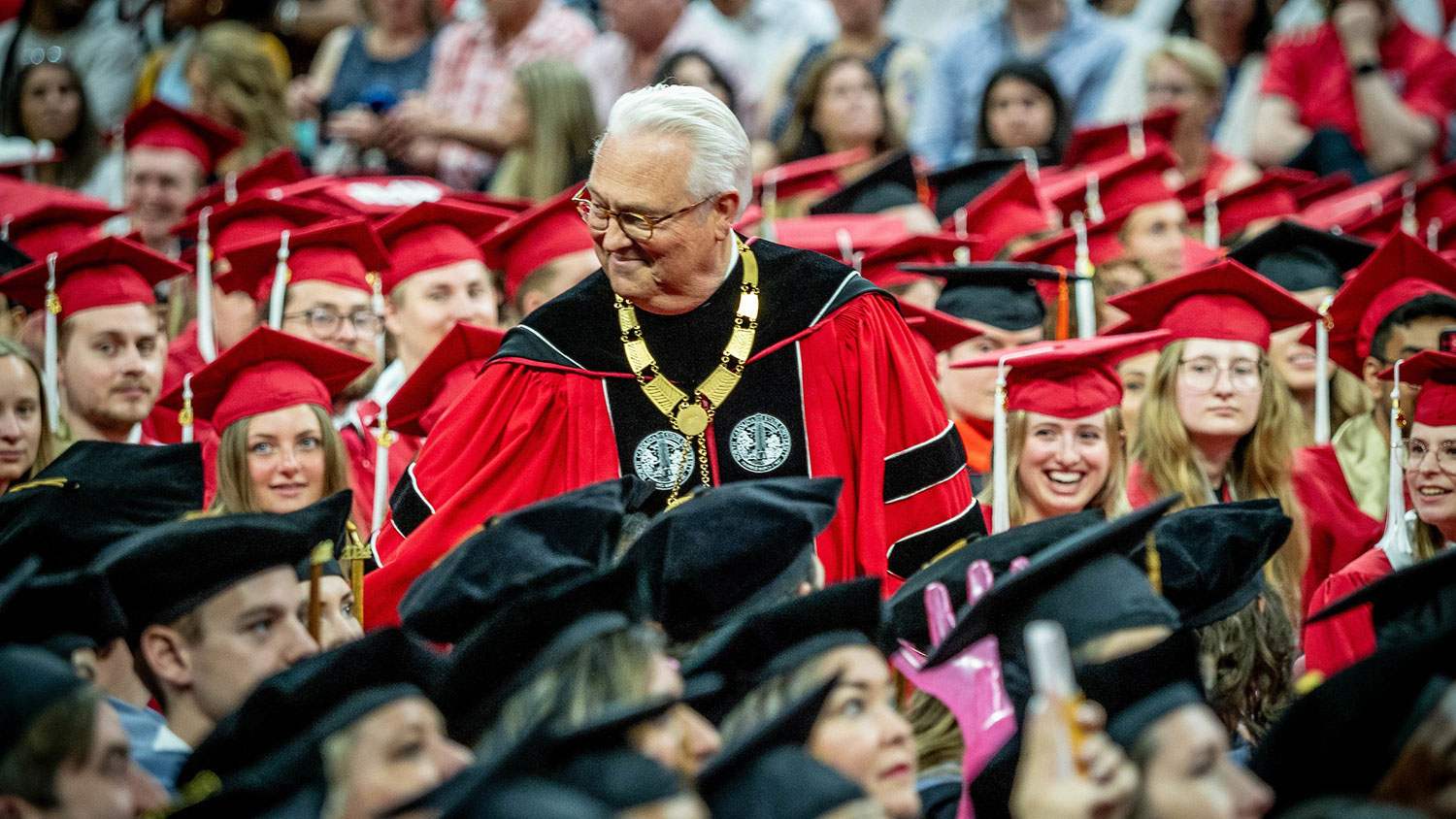Student Emergency Fund Continues to Help Students Thrive

Students attending NC State can do all the right things – apply for financial aid and scholarships, create a budget and stick to it, avoid spending money on unnecessary expenses – to try and have enough money to make it through each semester.
But what if the unexpected happens?
A commuter student’s car needs repairs; a natural disaster floods a student’s apartment; or a health emergency incurs out-of-pocket costs.
Those types of unforeseen expenses can mean the difference between a student continuing to progress toward their degree or struggling, said Mike Giancola, assistant vice provost and student ombudsperson at NC State.
It’s the reason university officials established the Student Emergency Fund in 2018 during the ongoing Think and Do the Extraordinary Campaign.
“The Student Emergency Fund was created to assist students who are faced with the difficult decision whether to continue on in school or not, based on an unexpected financial challenge,” he said. “With a little bit of support, we can help that student stay focused on their academics, and ultimately stay enrolled in classes.”
The Student Emergency Fund provides grants up to $500. These are not loans, Giancola emphasized, and do not have to be paid back.
Michele Crenshaw, a graduate student in the College of Humanities and Social Sciences, said the assistance and lack of judgment she received when asking for aid were vital in her education.
“You allow students to maintain their dignity and remain focused on their education goals,” Crenshaw said of the program.
The Student Emergency Fund is completely funded through private support from donors and friends of the university, he said.
“In some cases, our donors [to the fund] are alums who have experienced some kind of food, housing or financial insecurity when they were a student,” Giancola said. “We didn’t have a formalized program then, but often they had a faculty member who had food in their office or invited them to dinner, so they want to give back in some way.”
The number of students who apply for aid from the Student Emergency Fund and other student support services offered through NC State’s Pack Essentials program continues to increase each semester, Giancola said. Added to that, a 2017 research study published by psychology professor Mary Haskett indicated 14 percent of NC State students had experienced food insecurity during the previous 30 days and 10 percent had experienced homelessness or housing insecurity during the previous year.
“Based on those numbers, we know that there are likely more students that need these services and just haven’t come forward yet,” Giancola said.
Currently, he said the university is able to meet students’ needs within a day when it comes to Student Emergency Fund applications. The quick turnaround is necessary because a student might be on the verge of having their electricity cut off, or someone may need immediate assistance to leave a domestic violence situation.
Already, there have been more than 150 allocations through the Student Emergency Fund since its inception, totaling about $70,000, Giancola said.
In addition to raising funds to meet these needs, he said the university is also working to endow the Student Emergency Fund so it can continue in perpetuity.
“There’s been a demographic shift in who’s coming to college and to NC State – the needs will increase in the future,” he said. “We have more students who have children, specifically single parents who are oftentimes living at the margins.
“We’re enrolling more students from rural communities in North Carolina and other states, and first-generation students – these are all examples of students who may not have as much family support and resources; one small emergency can have a major impact on their ability to stay in school.”
What’s more, Giancola said students oftentimes understate their needs. He has spoken to students who say they’re having a difficult time paying their rent. When asked how they provide food, he learns they’re eating a granola bar for breakfast and a small meal late in the evening when they return home, unable to afford a meal plan or lunch during the day.
“We don’t want them just to survive, we want them to thrive,” Giancola said. “We want them to know they can take advantage of these resources.”
As NC State launches its Extraordinary Opportunity Scholarship Initiative (EOSI), he said he sees the two working hand in hand. EOSI will provide additional need-based scholarship support for students struggling to live month-to-month, while the Student Emergency Fund can provide immediate aid for the unexpected, he said.
“We appreciate the private support we receive because it makes a significant impact on students,” Giancola said. “The metrics we’re tracking regarding whether these students stay enrolled and whether they’re graduating tell us we’re making a difference.
“Students can focus on learning and studying, and that’s really what they want to do.”
- Categories:


